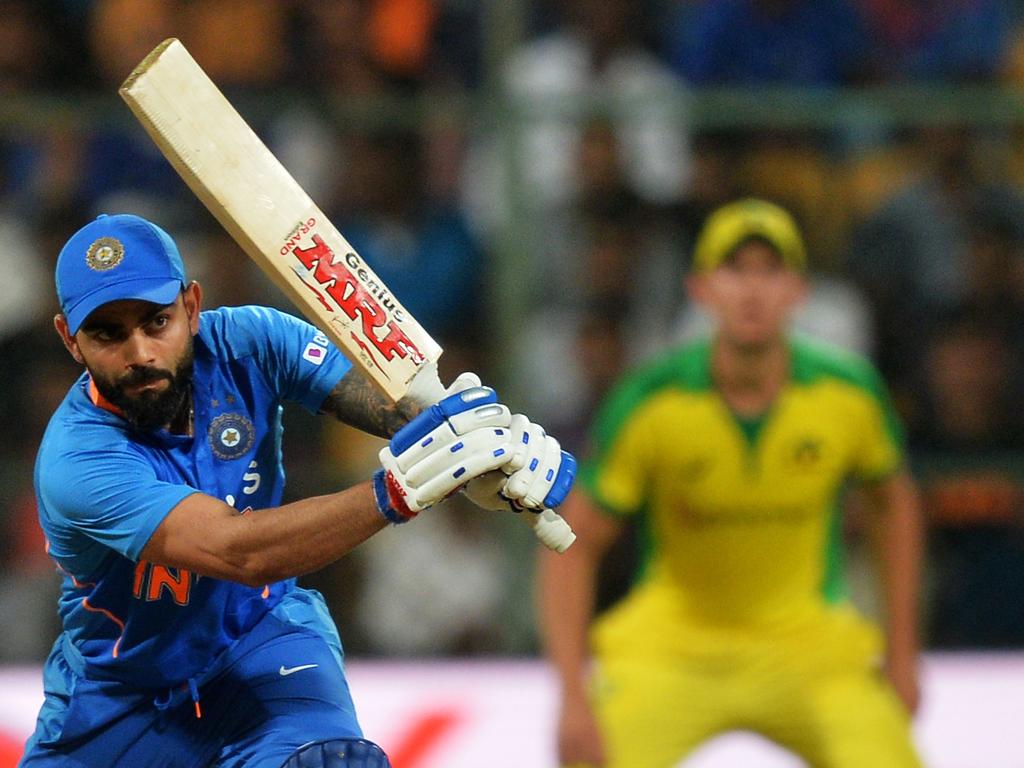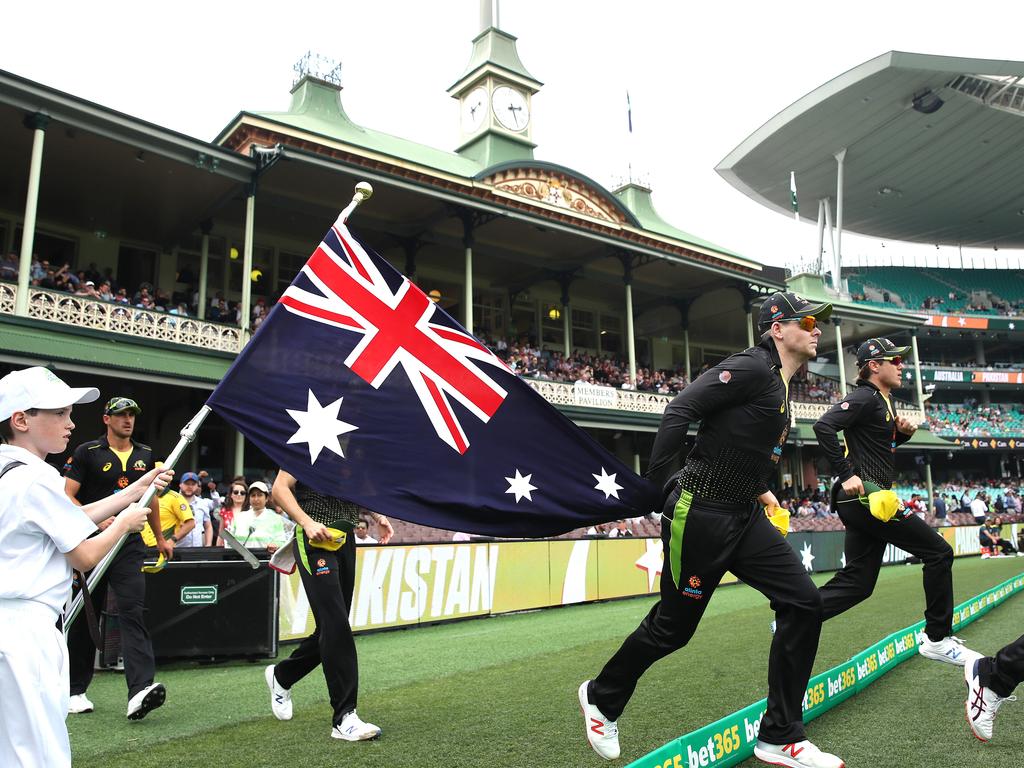Cricket’s high stakes standoff with TV networks has no winners
Cricket won’t budge in negotiations with its networks ahead of the summer but has a major problem with both.

The game could survive well enough without the 200-odd runs per Test David Warner and Steve Smith contribute, but the $200m-odd Channel 7 and Fox Cricket contribute a year are critical to cricket as we know it in this country.
Even if that broadcast deal is met in full it is unlikely it will ever be matched again. The big money has gone from sports broadcasting and the traditional partners of the game are all disaffected to one degree or another.
Cricket rejects any notion that Seven can walk away from its contract or get a discount this summer and is holding the similar line with Fox Cricket, which is watching this one play out from a quiet corner.
The game argues it can’t afford to blink and doesn’t have to. To bend to one is to bend to both. It is sympathetic to the financial plight of both networks and has attempted to mitigate costs where it could this summer but such moves have not been enough to appease either broadcaster.
Both are boiling with frustration and feeling financial pressures.
The broadcasters argue they can’t afford to keep paying top dollar for a product that only vaguely resembles the $1.2bn they paid.
The administration is adamant it will deliver a full summer of cricket even if it is through extraordinary means and even if it means the BBL suffers further for another summer.
Both broadcasters have complained for two years about the quality of that domestic tournament and are particularly aggrieved that promises to improve it have been undone by extraordinary circumstances.
Cricket Australia will roll out the first elements of its summer planning next week and hope that it appeases some of the frustrations of broadcast partners, but won’t be holding its breath.
When you have been labelled by Seven boss James Warburton as the most “incompetent administration” a network has worked with, a “train wreck”, “bumbling” and “stumbling” you know these are dangerous times.
The game has already lost one chief executive this year.
The sporting body has advice it is only in breach of its contract if it doesn’t deliver the international and domestic summer which it has every intention of doing.
The broadcasters’ argument is that the BBL is an inferior product to the one they bought, but the contracts are about quantity, not quality, of cricket.
The most likely fixture and the working document has the white-ball series before the India Test series and the Afghanistan Test ahead of them all.
The Boxing Day match is scheduled for Adelaide, the Sydney and Brisbane Tests for January.
The Sheffield Shield season will begin with four matches per team in October. Cricket Australia expects to be at least able to announced the women’s international, women’s BBL and domestic schedules next week.
Everything is in a state of flux and relies on approvals from state governments. No sport has attempted to get international teams into the country since the early days of the pandemic.
A plan to announce a key sponsor was pulled this week when Warburton launched his first broadside.
Managing relationships with the two broadcasters is critical because cricket does not have a lot of options. On Thursday Nine announced it was abandoning its commitment to broadcast the T20 men’s World Cup which was supposed to be in October-November but has been postponed.
Channel 10, which had been cricket’s BBL partner in the last deal, will have no sympathy for cricket. The network offered $950m for the sole rights but was gazumped at the last minute in a move that left it furious. Channel 10 is wondering if it dodged a bullet.
It had been an ugly rights negotiation. The local broadcaster’s American partner CBS International was shocked to be labelled “bottom feeders” by then Cricket Australia chairman David Peever.
Nick Hockley took over as acting chief executive at Cricket Australia when Kevin Roberts stood aside in June. After recent weeks he could be excused for having second thoughts.
Warburton claimed he had a better relationship with the previous CEO, who he said had more sympathy for its plight.
“Kevin Roberts recognised these challenges and had started to engage with his broadcast partners to ensure fans would see the best cricket had to offer in 2020-21,” he said.
“The Cricket Australia hierarchy sacked him.”
Roberts’s claims early in the year that the summer was heading towards a financial disaster have proved more prescient as time passes.
While the former CEO may be proved right it appeared he was let go because of the manner in which he went about preparing for such an eventuality.






Cricket Australia is calling Seven West Media’s bluff in a game where there won’t be any winners.